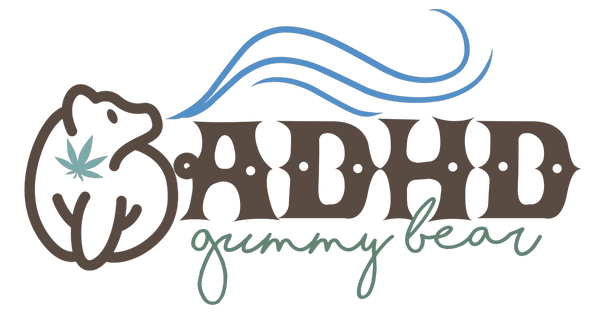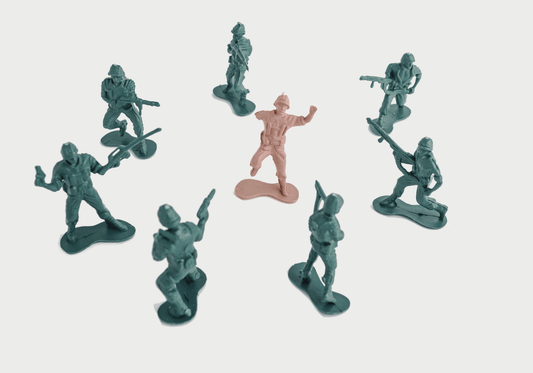
Unveiling the Hidden Superheroes in Our ADHD Children
Featured image by RichVintage from Getty Images Signature
Friends, gather 'round and buckle up! Today, we're diving into the world of superheroes. No, not Batman or Wonder Woman (though they’re pretty awesome, too!). I’m talking about the little caped crusaders living with ADD/ADHD.
You see, having ADD/ADHD is kind of like having a superpower. These kiddos might be a little extra squirrelly, a smidge more scatterbrained, and a handful more hyperactive, but they’re also exceptionally creative, incredibly intuitive, and superhumanly energetic. Can you say, “Hidden Superheroes”?
Raising a child with Attention Deficit Hyperactivity Disorder (ADHD) can sometimes feel like you’re stepping out of your comfy mom jeans and straight into the shiny spandex of a sidekick. It’s challenging, rewarding, and oh-so enlightening.
Let’s get to know our little superheroes a bit better, shall we?
Understanding ADHD
What’s in a Name?
Well, if we’re talking about ADHD, quite a lot! ADHD is a neurodevelopmental disorder characterized by persistent patterns of inattention, impulsivity, and hyperactivity. Your little one might show symptoms like difficulty paying attention, constant fidgeting, impulsivity, forgetfulness, and, well, a frown on their teacher’s face when they just can’t seem to follow instructions.
How Common is ADHD?
According to the Centers for Disease Control and Prevention (CDC), ADHD is quite common! Approximately 6.1 million children in the United States have been diagnosed with the condition. It’s more frequent in boys than girls, with a ratio of about 3 to 1. That means if your little champ has ADHD, they’re definitely not alone.
Why ADHD?
This, dear friends, is the million-dollar question. The exact cause of ADHD remains a mystery. Research suggests it’s a mix of genetic, environmental, and neurological factors. Some recognized risk factors include prenatal exposure to tobacco smoke, premature birth, low birth weight, and exposure to lead.
Challenges Faced by ADHD Children
School Struggles
Our superheroes might find academic tasks overwhelming, especially those requiring sustained attention, organization, or time management. Assignments can seem like towering mountains, and staying focused in class can be tougher than breaking into a coconut without a hammer.
Social and Emotional Hurdles
Making and keeping friends when struggling with impulsivity, social cue comprehension, and emotional regulation can feel as tricky as assembling a puzzle with missing pieces. ADHD kiddos might unintentionally interrupt others, struggle with waiting their turn, or experience frustration more intensely than their peers.
A Need for Movement
Sitting still? Pfft, not in their vocabulary! Hyperactivity and impulsivity often make these mini-superheroes known for their seemingly boundless energy. They might frequently get up from their seats, climb on furniture, or blurt out answers in class before the teacher even finishes the question.
Strategies for Raising a Superhero
Education and Awareness
Knowledge is power! Read books, attend workshops, and seek professional advice. Just as importantly, ensure ADHD is understood in your child’s school and community. The more informed the environment, the better equipped it will be to support them.
Structure and Routine
Consistency is your best friend. Like a reliable cup of morning coffee or that favorite worn-in sweater, a structured routine makes a world of difference. Divide tasks into smaller, manageable steps and provide clear instructions—think bite-sized snack, not overwhelming buffet. For more insights, check out parenting hacks balancing independence and routine.
Positive Reinforcement
Encouragement works wonders! Whether it’s a sticker chart, words of affirmation, or a reward system, celebrating their efforts (not just results) builds confidence. Need ideas on fostering positivity? You might find creating a positive environment to be a helpful read.
Open Communication
Stay connected with teachers and healthcare professionals to ensure your child is receiving the right support. Also, encourage your child to express their emotions and needs, helping them develop self-advocacy skills for the long run.
Healthy Lifestyle
Physical and mental well-being go hand in hand. Regular exercise, a balanced diet, and sufficient sleep significantly benefit ADHD management. Outdoor play? Yes, please! Excessive screen time? Maybe let’s keep that in check. Explore more about this balance in navigating the sea of motherhood.
Oh, and a little pro-mama tip: While you’re juggling school, playdates, therapies, and superhero training, don’t forget to pause. Breathe. You’re doing amazing.
Raising a child with ADHD requires patience, understanding, and a supportive environment. Every child is unique, so what works for one may not work for another. But with encouragement, knowledge, and structured support, these little superheroes can thrive, using their strengths to overcome obstacles along the way.
Because, after all, not all heroes wear capes—some just have a little trouble sitting still.
For more detailed information, check out this resource. We also have a lot of good links and helpful information in our Parenting & Neurodiversity area.
See you on the playground, sidekicks!





